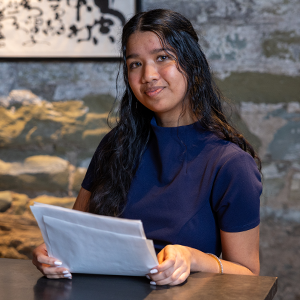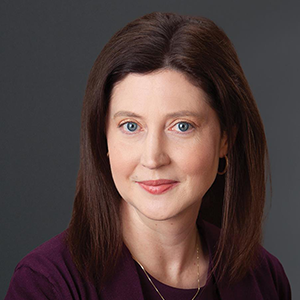How one class can change everything

When I grudgingly took Journalism I in high school, I was hoping for an easy elective. I never expected to be named a finalist for a variety of college media awards just a few years later. Unfortunately, it was not as simple a journey as this story’s lead might lead you to believe.
Along the way, I had to find my own voice, which meant learning to listen to the people I met and gaining their trust, so I could have the opportunity to tell their stories. The extraordinary thing about the journalism program at Mt. Lebanon High School was its focus on the fundamentals of being a good journalist: conducting interviews, structuring an engaging story, getting your facts right and drawing the reader into the story.
As a student, you practice writing stories, understand how to work with editors and learn the basics of AP Style. I never expected to like it enough to take Journalism II and become a member of the Devil’s Advocate staff, but that’s exactly what I did. Not only did I learn how to work as part of a student newsroom, but I also found my passion for writing about members of my community. There were fun stories, inspiring stories, stories of triumphs, and sad stories, too. One that particularly impacted me was about Mt. Lebanon resident Mary Beth Beggy. Mary Beth fought multiple cancer diagnoses over several years before dying on June 6, 2014. I interviewed the family members who were planning a fundraising event in her honor. It was an emotional interview—made more so by the realization that she had passed away on the same day as my birthday, but I was determined to make sure that anyone who read the story would feel like they knew what mattered to her.
Fast forward to my freshman year at Robert Morris University; I wanted to be involved on campus. With my background in journalism from Mt. Lebanon, I was drawn to college media and started attending the weekly meetings of Sentry Media, RMU’s student-run news organization. As a small fish in a new pond, I took a few assignments, but found myself focused on the arts and entertainment section of the online newspaper. Things moved much faster in college as the online site posted continuously—often seven days a week, which meant there was a need for a steady stream of content. Getting used to this pace and leaning on what I learned in high school journalism, I became the manager of the arts and entertainment section as a sophomore—a position I held for three years.
My writing for Sentry Media primarily focused on the people of RMU: students, faculty and staff. Stealing the zeitgeist of Humans of New York, I created my own recurring series called the Humans of RMU. Writing about a new person nearly every week, it was exciting and fulfilling to get to know so many people in that community.
I especially remember articles that helped me see the world from a different point of view. I wrote about a Black sorority on campus where I learned a little bit about their deep history. I met a professor who had written a book about his family secret—learned too late—and how writing the book helped him understand the impact it had on his life.
While not every story was nominated for an award, and not every story had some profound message, each story I’ve told has stayed with me. Even when meeting people today, I try to understand who they are by listening to their stories—seeing their life and the world from a unique point of view. It has enriched my life immensely and none of that would have been possible without that initial Journalism I course at Mt. Lebanon High School.





